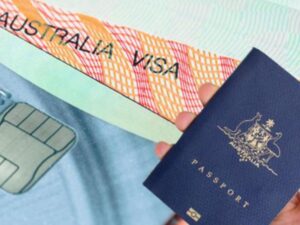The Netherlands, a land renowned for its progressive thinking and breathtaking scenery, is increasingly becoming a haven for remote workers seeking a change of pace. But navigating the complexities of securing a remote job and obtaining the necessary visa sponsorship opportunities in the Netherlands can feel daunting.
This comprehensive guide will serve as your compass, guiding you through the intricacies of the Dutch job market, the visa application process, and the cultural nuances of life in the Netherlands. Whether you’re a seasoned digital nomad yearning for a stable base in Europe or a skilled professional seeking a new challenge, this guide will provide you with the insights and strategies to successfully unlock your Dutch dream.
We’ll delve into the factors that make the Netherlands a prime destination for remote workers, explore the eligibility criteria for visa sponsorship, and outline the step-by-step process of securing a work permit. We’ll also offer practical tips for increasing your chances of success, from crafting a compelling resume to navigating the Dutch cultural landscape.
Understanding the Dutch Job Market for Remote Workers
The Netherlands is a progressive nation that embraces remote work. Many Dutch companies are open to hiring international talent, particularly in sectors like tech, finance, and creative industries.
Key factors contributing to this trend:
- Strong digital infrastructure: The Netherlands boasts excellent internet connectivity and a robust digital ecosystem, making it an ideal location for remote work.
- Focus on innovation: The Dutch government actively supports innovation and attracts tech companies, creating a vibrant and competitive job market.
- Multicultural society: The Netherlands is a diverse and welcoming country with a long history of international collaboration.
Understanding Dutch Visa Requirements for Remote Workers
While the Netherlands doesn’t have a dedicated “digital nomad visa,” there are several pathways available for remote workers. The most suitable option will depend on your specific circumstances, such as your employment status, the nature of your work, and your length of stay.
-
Self-Employed Visa
Ideal for: Freelancers, entrepreneurs, and independent contractors.
Requirements:
- Business Registration: You’ll need to register your business as a sole proprietorship or limited liability company in the Netherlands.
- Financial Stability: Demonstrate sufficient income to support yourself and any dependents during your stay.
- Business Plan: Provide a detailed business plan outlining your activities, target market, and financial projections.
- Proof of Work: Evidence of ongoing projects or client contracts.
- Language Proficiency: While not always a strict requirement, proficiency in Dutch can be beneficial, especially if your work involves interacting with Dutch clients or colleagues.
-
Work Permit
Ideal for: Individuals employed by a Dutch company.
Requirements:
- Job Offer: A formal job offer from a Dutch employer.
- Employer Sponsorship: Your employer must sponsor your work permit application.
- Labor Market Test: The employer may need to demonstrate that no suitable Dutch candidate is available for the position.
- Proof of Qualifications: Evidence of your qualifications and experience relevant to the job.
- Language Proficiency: While not always a strict requirement, proficiency in Dutch can be beneficial, especially if your work involves interacting with Dutch clients or colleagues.
-
Digital Nomad Visa (Local Initiatives)
Ideal for: Digital nomads seeking temporary residency and work permits.
Requirements:
- Vary by Municipality: Specific requirements may differ depending on the municipality offering the visa.
- Common Requirements: Typically include proof of income, health insurance, and a valid passport.
- Business Registration: In some cases, you may need to register as a self-employed individual or set up a limited liability company.
- Language Proficiency: While not always a strict requirement, proficiency in Dutch can be beneficial, especially if your work involves interacting with Dutch clients or colleagues.
-
Start-up Visa
Ideal for: Entrepreneurs launching a new business in the Netherlands.
Requirements:
- Business Plan: A detailed and innovative business plan.
- Investment: Sufficient funding to support your business venture.
- Team: A qualified team of individuals to work on the business.
- Innovation: Your business should contribute to economic growth or innovation in the Netherlands.
- Language Proficiency: While not always a strict requirement, proficiency in Dutch can be beneficial, especially if your work involves interacting with Dutch clients or colleagues.
Other Key Considerations:
- Income: You’ll need to demonstrate sufficient income to support yourself and any dependents during your stay.
- Health Insurance: You’ll need to have comprehensive health insurance coverage valid in the Netherlands.
- Housing: Ensure you have suitable housing arrangements before arriving in the Netherlands.
- Language Proficiency: While not always a strict requirement, proficiency in Dutch can be beneficial, especially if your work involves interacting with Dutch clients or colleagues.
Research the specific requirements for each visa option and consult with an immigration professional for personalized advice.
Additionally, it’s important to note that the visa application process can be time-consuming. It’s recommended to start planning and gathering necessary documents well in advance. Be prepared to provide supporting evidence for your application, such as bank statements, employment letters, and proof of accommodation.
If you’re a digital nomad, consider reaching out to Dutch municipalities that offer digital nomad visas. These initiatives often provide additional support and resources for remote workers, such as co-working spaces and networking events.
By understanding the available visa options and carefully preparing your application, you can increase your chances of successfully relocating to the Netherlands and enjoying the benefits of remote work in this vibrant and welcoming country.
Eligibility Criteria Remote Jobs with Visa Sponsorship in the Netherlands
Securing a remote job in the Netherlands and obtaining the necessary visa sponsorship involves meeting specific eligibility criteria. These criteria are designed to ensure that the position aligns with Dutch labor market needs and that the foreign worker possesses the necessary skills and qualifications.
Here’s a breakdown of the key eligibility criteria:
-
Job Requirements:
- Skill Level: The position must typically require a high level of expertise or specialization. This often translates to roles that demand advanced education, significant professional experience, or unique skill sets.
- Salary Threshold: The offered salary must meet or exceed a specific minimum threshold set by the Dutch government. This threshold is regularly adjusted to reflect the cost of living and prevailing market conditions.
- Labor Market Test: Dutch employers are generally required to demonstrate that they have made a genuine effort to find a suitable Dutch or EU/EEA national for the position before considering a foreign candidate. This often involves advertising the position through various channels and actively searching within the domestic labor market.
-
Employer Responsibilities:
- Sponsorship Commitment: The Dutch employer assumes the responsibility of sponsoring the work permit application. This includes gathering the necessary documentation, submitting the application to the Dutch Immigration and Naturalization Service (IND), and ensuring compliance with all relevant regulations.
- Job Offer: A formal job offer must be extended to the foreign worker, outlining the terms and conditions of employment, including salary, benefits, and expected duties.
- Company Reputation: The employer must maintain a positive reputation and adhere to all applicable labor laws and regulations within the Netherlands.
-
Foreign Worker Qualifications:
- Education and Experience: Candidates must possess the necessary education, training, and professional experience to successfully fulfill the requirements of the position.
- Language Proficiency: While English is widely spoken in the Netherlands, demonstrating proficiency in Dutch can significantly enhance your application and integration prospects.
- Clean Criminal Record: A clean criminal record is typically required for all visa applicants.
-
Specific Visa Categories:
- Highly Skilled Migrant (HSM) Visa: This visa category is designed for highly skilled professionals who meet specific salary and education requirements.
- Intra-Company Transfer Visa: This visa is applicable to employees who are transferred within a multinational company to work in the Netherlands.
Important Considerations:
- Eligibility criteria can vary: The specific requirements may vary depending on the industry, job type, and individual circumstances.
- Regular updates: It’s crucial to stay informed about any changes to the eligibility criteria, as immigration regulations can be subject to updates.
By carefully reviewing and understanding these eligibility criteria, both foreign workers and Dutch employers can navigate the visa sponsorship process more effectively and increase their chances of a successful outcome.
Remote Jobs with Visa Sponsorship in the Netherlands
The Netherlands, with its robust digital infrastructure and progressive work culture, offers a compelling environment for remote workers. Here are 9 in-demand remote jobs with potential for visa sponsorship:
-
Software Engineer (Average Salary: €60,000 – €100,000 per year)
- Role: Develop, test, and maintain software applications.
- Skills: Proficiency in programming languages (e.g., Python, Java, JavaScript), strong problem-solving abilities, and experience with Agile methodologies.
- Why it’s in demand: The Netherlands boasts a thriving tech scene, with numerous startups and established companies seeking skilled software engineers.
-
Data Scientist (Average Salary: €65,000 – €120,000 per year)
- Role: Analyze large datasets to extract meaningful insights and inform business decisions.
- Skills: Expertise in statistical modeling, machine learning, data visualization, and programming languages like Python and R.
- Why it’s in demand: The increasing reliance on data-driven decision-making across various sectors creates a high demand for skilled data scientists.
-
UX/UI Designer (Average Salary: €50,000 – €80,000 per year)
- Role: Create user-friendly and visually appealing digital experiences.
- Skills: Proficiency in design software (e.g., Figma, Sketch), understanding of user-centered design principles, and strong communication skills.
- Why it’s in demand: The focus on user experience is paramount in today’s digital world, making UX/UI designers highly sought after.
-
Cybersecurity Analyst (Average Salary: €55,000 – €90,000 per year)
- Role: Protect computer systems and networks from cyber threats.
- Skills: Knowledge of cybersecurity best practices, experience with intrusion detection systems, and proficiency in network security tools.
- Why it’s in demand: The increasing sophistication of cyber threats has led to a growing demand for skilled cybersecurity professionals.
-
Digital Marketing Specialist (Average Salary: €45,000 – €75,000 per year)
- Role: Develop and execute digital marketing campaigns to increase brand awareness and drive customer engagement.
- Skills: Expertise in SEO, social media marketing, content marketing, and email marketing.
- Why it’s in demand: The shift towards digital marketing has created a high demand for professionals who can effectively leverage online channels.
-
Project Manager (Average Salary: €55,000 – €90,000 per year)
- Role: Plan, execute, and monitor projects to ensure they are completed on time, within budget, and to the desired quality standards.
- Skills: Strong organizational and communication skills, experience with project management methodologies (e.g., Agile, Scrum), and the ability to lead and motivate teams.
- Why it’s in demand: Project management is a crucial skill in today’s fast-paced business environment.
-
Business Analyst (Average Salary: €50,000 – €85,000 per year)
- Role: Analyze business processes, identify areas for improvement, and recommend solutions.
- Skills: Strong analytical and problem-solving skills, experience with data analysis tools, and excellent communication and presentation skills.
- Why it’s in demand: Businesses are constantly seeking ways to improve efficiency and productivity, making business analysts highly valuable assets.
-
Technical Writer (Average Salary: €40,000 – €65,000 per year)
- Role: Create clear and concise technical documentation, such as user manuals, software guides, and API documentation.
- Skills: Excellent writing and communication skills, technical expertise in a specific domain, and the ability to translate complex information into easily understandable language.
- Why it’s in demand: The demand for high-quality technical documentation is increasing as businesses rely more heavily on technology.
-
Customer Success Manager (Average Salary: €50,000 – €80,000 per year)
- Role: Build and maintain strong relationships with customers to ensure their satisfaction and retention.
- Skills: Excellent communication and interpersonal skills, strong problem-solving abilities, and a customer-centric approach.
- Why it’s in demand: Customer success is a critical factor for businesses, and companies are increasingly investing in dedicated customer success teams.
-
Blockchain Developer (Average Salary: €60,000 – €120,000 per year)
- Role: Design, develop, and deploy blockchain applications and smart contracts.
- Skills: Proficiency in blockchain platforms (e.g., Ethereum, Hyperledger), knowledge of cryptography, and experience with programming languages like Solidity and Python.
- Why it’s in demand: The growing interest in blockchain technology across various industries has created a high demand for skilled blockchain developers.
-
Cloud Engineer (Average Salary: €65,000 – €110,000 per year)
- Role: Design, build, and manage cloud computing infrastructure.
- Skills: Expertise in cloud platforms (e.g., AWS, Azure, Google Cloud), experience with virtualization and containerization technologies, and strong automation skills.
- Why it’s in demand: The increasing adoption of cloud computing has led to a surge in demand for skilled cloud engineers.
-
DevOps Engineer (Average Salary: €60,000 – €100,000 per year)
- Role: Bridge the gap between software development and IT operations, automating processes and improving the software delivery lifecycle.
- Skills: Experience with automation tools (e.g., Ansible, Puppet, Chef), knowledge of containerization technologies (e.g., Docker, Kubernetes), and strong scripting skills.
- Why it’s in demand: DevOps practices are becoming increasingly important for organizations, leading to a high demand for skilled DevOps engineers.
-
AI/Machine Learning Engineer (Average Salary: €70,000 – €130,000 per year)
- Role: Develop and implement AI and machine learning algorithms to solve complex problems.
- Skills: Expertise in machine learning algorithms (e.g., deep learning, natural language processing), experience with AI/ML frameworks (e.g., TensorFlow, PyTorch), and strong programming skills in Python.
- Why it’s in demand: The rapid advancement of AI and machine learning is driving a high demand for skilled professionals in this field.
-
Cybersecurity Architect (Average Salary: €80,000 – €150,000 per year)
- Role: Design and implement an organization’s overall cybersecurity strategy.
- Skills: In-depth knowledge of cybersecurity best practices, experience with security architectures and frameworks, and strong leadership and communication skills.
- Why it’s in demand: As cyber threats become more sophisticated, the demand for experienced cybersecurity architects is increasing significantly.
By exploring these in-demand remote job opportunities and carefully navigating the visa sponsorship process, you can increase your chances of building a successful career in the Netherlands.
Key Factors for Success with Visa Sponsorship in the Netherlands
Securing a remote job with visa sponsorship in the Netherlands requires a multifaceted approach. Here are some key factors that significantly increase your chances of success:
-
Strong Professional Profile:
- In-Demand Skills: Possessing highly sought-after skills in fields like technology (software development, data science, cybersecurity), digital marketing, and finance significantly enhances your appeal to Dutch employers.
- Relevant Experience: A strong track record of professional achievements and a proven ability to excel in your field are crucial.
- Higher Education: A relevant university degree or advanced qualifications can significantly improve your job prospects.
-
Targeted Job Search:
- Leveraging Online Platforms: Utilize job boards like LinkedIn, Indeed, and specialized remote job boards to identify suitable opportunities.
- Networking: Connect with professionals in your field, attend industry events, and leverage your existing network to discover potential job openings.
- Direct Applications: Research Dutch companies that align with your interests and directly apply for open positions on their websites.
-
Compelling Application Materials:
- Tailored Resume and Cover Letter: Customize your resume and cover letter to highlight your skills and experience relevant to the specific requirements of the Dutch job market.
- Demonstrating Value: Clearly articulate how your skills and experience can benefit the Dutch employer and contribute to their success.
- Language Proficiency: While English is widely spoken, demonstrating proficiency in Dutch can significantly enhance your application.
-
Understanding the Dutch Job Market:
- Researching Industry Trends: Stay informed about the latest trends and developments in your field within the Dutch context.
- Understanding Dutch Work Culture: Familiarizing yourself with Dutch work ethics, communication styles, and workplace expectations can help you navigate the cultural nuances effectively.
-
Building a Strong Relationship with the Employer:
- Clear Communication: Maintain open and transparent communication with your potential employer throughout the hiring and visa application process.
- Demonstrating Enthusiasm: Express genuine enthusiasm for the opportunity to work in the Netherlands and contribute to the company’s success.
- Building Trust: Foster a strong and trusting relationship with your potential employer to facilitate a smooth visa application process.
-
Seeking Professional Guidance:
- Immigration Lawyer: Consult with an immigration lawyer specializing in Dutch immigration law to ensure compliance with all regulations and address any specific questions or concerns.
- Relocation Services: Consider utilizing relocation services to assist with practical aspects of moving to the Netherlands, such as finding accommodation, setting up utilities, and navigating local bureaucracy.
By diligently pursuing these key factors, you can significantly increase your chances of securing a remote job with visa sponsorship in the Netherlands and embarking on a successful career in this dynamic and rewarding environment.
Conclusion
The Netherlands presents a compelling opportunity for remote workers seeking a high quality of life and fulfilling careers. While navigating the visa sponsorship process requires careful planning and attention to detail, the potential rewards are significant. By thoroughly researching eligibility criteria, identifying in-demand remote jobs, and building a strong professional network in the Netherlands, you can increase your chances of successfully securing remote jobs and embarking on a rewarding career journey in this progressive and welcoming nation.








